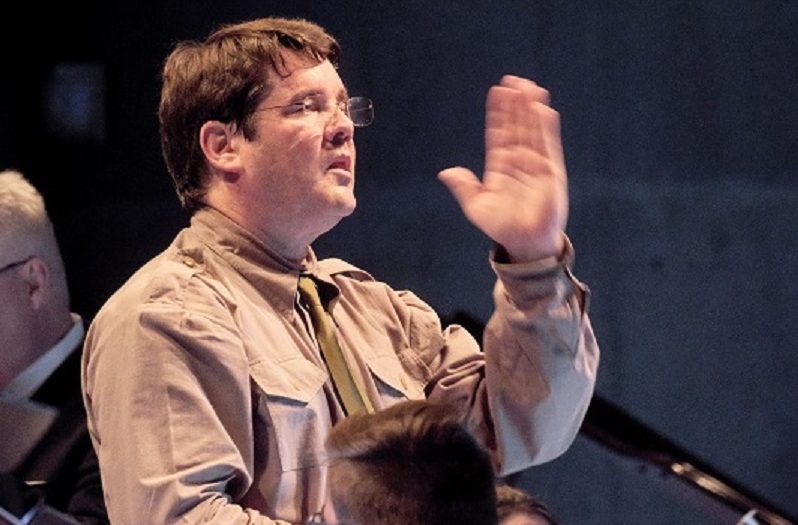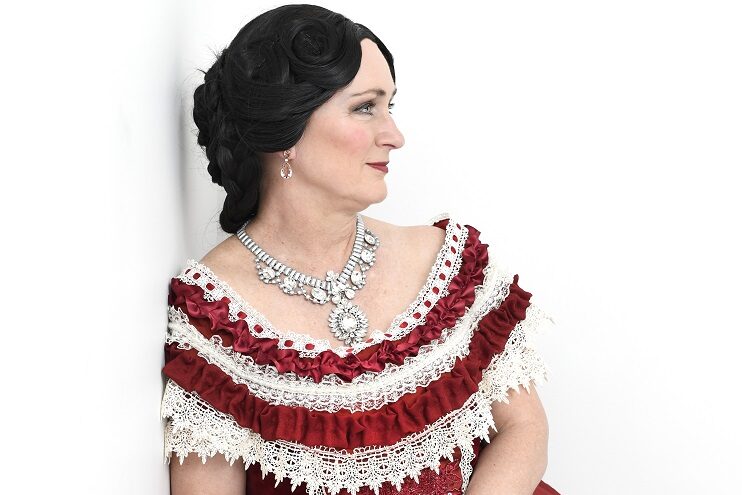
Music / “Odes to Peace”, Musica da Camera conducted by Christopher Latham. At the Australian Centre for Christianity and Culture, March 25. Reviewed by IAN McLEAN.
AS a concert in its own right this performance delivered well performed, evocative and moving music but, in its advertised role as a preview of the upcoming Peacekeeper Symphony concert, it went well beyond this premise.
Basically, the concert was too much of a good thing and this was not necessary.
Concert promotion proudly trumpeted a 3pm-4.30pm show but it was after 5.15pm before it concluded.
The first half featured music by composers killed in war or killed in the Holocaust. Concert conductor, artist-in-residence at the Australian War Memorial and the driving force behind the epic Flowers of War/ Flowers of Peace project, Christopher Latham, arranged all of the music utilising original material by FS Kelly, the Australian pianist who was killed in action at the Battle of the Somme, as well as three Jewish composers who were ultimately murdered in the Holocaust.
The arrangements were well played by a balanced and tuneful Musica da Camera string orchestra, well led by Rosemary McPhail and supported by the always accurate Dr Edward Neeman on piano.
The Kelly “Four Seasons” varied from a gentle, flowing “Spring” through a melodically pleasing “Autumn” and a dark, foreboding “Winter”.
Music from all three Jewish composers was soulful, emotional and dramatic with a relentlessness rather than melodic beauty. Soprano Susannah Lawergren sang with wonderful clarity in “Radiant Venus”, a moving sonnet composed by Viktor Ullmann, ultimately a victim of the Auschwitz gas chambers.
The first half concluded with Susannah Hawergren changing style effortlessly to capture a dream of world of peace in the John Lennon classic “Imagine” then a not so great arrangement of the Cat Stevens’ song “Peace Train”.
While musically most satisfying, the first half seemed superfluous to the stated intention of the concert – a preview of the “Peacekeeper Symphony”!
That preview did occur after interval and was quite fascinating in its content. Australian military involvement in peacekeeping commenced in 1947 with deployment to Indonesia when Australia linked with the League of Nations, later the United Nations, in an aim to promote peace and prosperity.
Supported by poignant visual projections of photographs and written historical text, the orchestra, now joined with fine contributions from clarinettist Matthew O’Keeffe and shakuhachi virtuoso Riley Lee, journeyed through Australia’s contribution to peace keeping throughout the world.
Music ranged from an Elena Kats-Chernin mournful variation on the South Korean folk song “Ariyang”, through “Ghazali”, a song from the Middle East, to a Graeme Koehne work depicting the fledgling Cambodian democracy following the horrors of the Pol Pot regime.
Then a Latham arrangement, which combined Monteverdi’s “Lamenta della Ninfa” and the ending of Tchaikovsky’s
“Pathetique Symphony” into “Tears Must Fall”, a touching depiction of the ’90s peacekeeping missions in Somalia, Rwanda and Yugoslavia.
Technically some of these suffered with vocal sound being overpowered by the orchestra (amplification issue) to the extent that a new Latham set of words to Beethoven’s “Ode to Joy” was completely lost. Thankfully, the visual depictions created a feast for the senses, so, overall, the effect remained stunningly moving.
A somewhat annoying inclusion was “The Ground Beneath Our Feet”, a musical essay on global warming and climate change that seemed totally irrelevant to peacekeeping.
It was perhaps worthy in its own right, but out of context with the reverence created surrounding the peacekeeping efforts of Australian servicemen and women, both Defence and Federal police.
The concert was enjoyable in its sombre storytelling. but would have worked better had it focused only on its stated aim – to preview the upcoming “Peacekeeper Symphony”. Like the “Vietnam Requiem” and “POW Requiem” of recent years, the “Peacekeeper Symphony” will, without doubt, be appropriately moving and emotionally draining. This preview will influence ultimate programming.
In fact the audience was invited to pass constructive comment on today’s concert content to the producers.
Another preview will take place on June 29 when Fred Smith, now an icon of musical storytelling, will, in his unique style, describe his experiences in Bougainville and the Solomon Islands.
Programming will then be ultimately refined and the “Peacekeeper Symphony”, to be performed on September 15, will certainly become another vitally important link to Australia’s military history.
Who can be trusted?
In a world of spin and confusion, there’s never been a more important time to support independent journalism in Canberra.
If you trust our work online and want to enforce the power of independent voices, I invite you to make a small contribution.
Every dollar of support is invested back into our journalism to help keep citynews.com.au strong and free.
Thank you,
Ian Meikle, editor








Leave a Reply